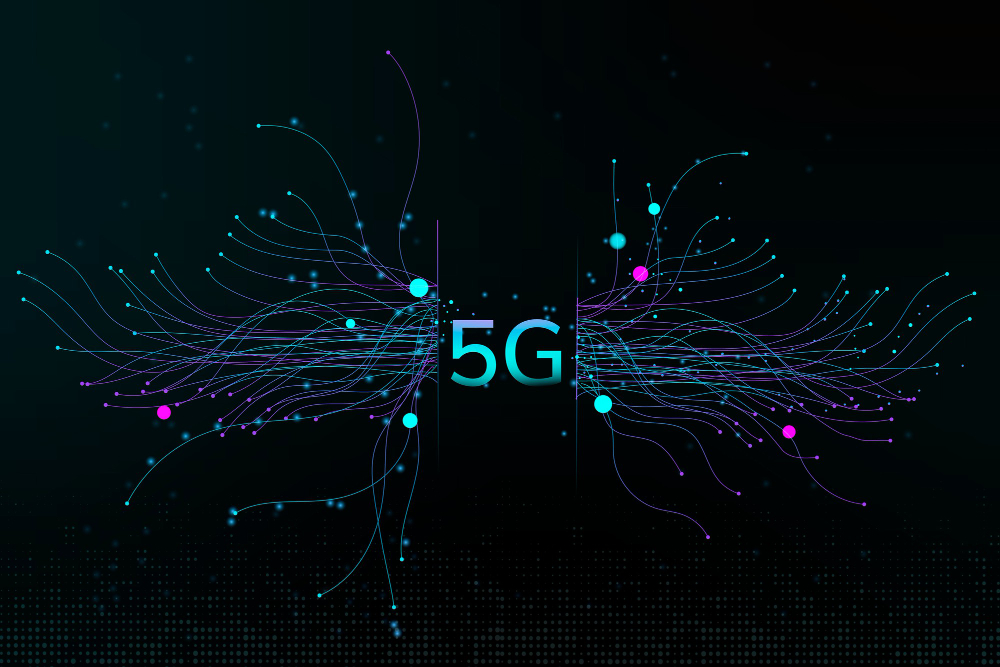5G Technology: Revolutionizing the Internet of Things and Smart Devices
The Internet of Things (IoT) has become a defining feature of our modern world. From smart homes to connected cities, technology is rapidly transforming how we live, work, and interact with the environment around us. However, the full potential of the IoT is yet to be fully realized. This is where 5G technology comes in, poised to revolutionize the way we connect and utilize smart devices.
Understanding 5G
5G is the fifth generation of cellular network technology, offering significantly faster data speeds, lower latency (response times), and greater capacity compared to its predecessors. Advancements are paving the way for a more connected and intelligent world, enabling seamless communication and data sharing between numerous devices.
Key Features of 5G
- Ultra-fast data speeds: 5G offers theoretical download speeds of up to 20 gigabits per second (Gbps), significantly faster than the 4G networks we currently use. This allows for near-instantaneous data transfer, enabling real-time applications and faster communication between devices.
- Ultra-low latency: 5G boasts incredibly low latency, meaning the time it takes for a device to send and receive data is minimised. This is crucial for applications requiring real-time responsiveness, such as remote surgery, autonomous vehicles, and industrial automation.
- Massive device connectivity: 5G networks can handle a significantly larger number of connected devices compared to previous generations. This opens doors for widespread adoption of the IoT, where billions of devices can connect and share data simultaneously.
Impact on the IoT and Smart Devices
The combination of these features in 5G unlocks a new era for IoT and smart devices. Here are some of the most significant impacts:
- Enhanced Performance: Faster data transfer and real-time communication will improve the performance and responsiveness of smart devices. Imagine smart home appliances communicating and adjusting settings instantly or connecting traffic lights optimizing traffic flow in real time.
- New Applications: 5 G’s low latency and high bandwidth enable the development of entirely new applications and use cases for the IoT. These include areas like remote healthcare monitoring, industrial automation, and smart cities with real-time data analysis and decision-making capabilities.
- Improved Security: 5G networks offer enhanced security features, reducing the risk of data breaches and cyberattacks on connected devices. This is crucial for ensuring the safety and reliability of IoT applications.
- Greater Accessibility: The increased capacity of 5G networks allows for wider coverage and better connectivity in remote areas. The IoT can now be expanded into previously inaccessible areas, providing new opportunities for smart agriculture, environmental monitoring, and disaster management.
Examples of 5G-powered IoT Applications
- Smart Homes: Imagine a fully connected home where your lights, thermostat, and appliances adjust automatically based on your preferences and real-time data. 5G enables seamless communication and control of these devices, creating a brilliant living space.
- Connected Cities: 5G can transform cities into smart hubs with real-time traffic management, intelligent waste management systems, and environmental monitoring capabilities. This leads to improved efficiency, sustainability, and public safety.
- Industrial Automation: 5G can revolutionise industrial processes by enabling real-time monitoring of machinery, remote control of robots, and predictive maintenance. This improves efficiency, reduces downtime, and enhances safety in industrial settings.
- Healthcare: 5G can facilitate remote patient monitoring, real-time data analysis for medical diagnosis, and even remote surgery with minimal latency. This improves access to healthcare and opens doors for innovative medical advancements.
The Future of 5G and IoT
The integration of 5G and the IoT is still in its early stages, but the potential is immense. As the technology evolves and becomes more widely adopted, we can expect even more innovative applications and transformative experiences across various sectors.
While challenges like infrastructure development and device compatibility need to be addressed, the future of 5G technology and the IoT is bright. This powerful combination promises to create a more connected, intelligent, and efficient world, enhancing our lives in countless ways.


